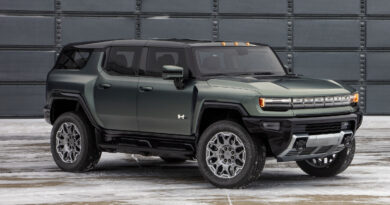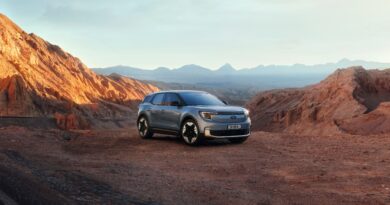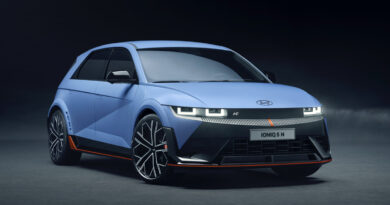Ute Wars! “Now is our time” declares GWM as it launches Cannon Alpha PHEV targeting BYD Shark 6
GWM has left no doubt it is targeting and intending to beat the BYD Shark 6 with its new Cannon Alpha plug-in ute.
The Cannon Alpha PHEV is launching now in Australia with an orthodox mechanical 4×4 system, higher towing capability than the BYD and more claimed range.
And it wants the world to know it!
READ MORE: Has the BYD Shark 6 already been dethroned? Ahead of April arrival, GWM Cannon Alpha PHEV claims better towing and off-road numbers
READ MORE: Shark hunter: Plug-in Nissan Frontier Pro unwrapped in Shanghai to rival BYD Shark 6, Ford Ranger and GWM Cannon Alpha PHEV
READ MORE: Global debut: Chinese PHEV ute avalanche continues with MG U9 dual cab 4×4 rival for BYD Shark 6, GWM Cannon Alpha and Ford Ranger PHEV
READ MORE: Look out BYD Shark 6 and GWM Cannon Alpha! Ford Ranger PHEV pricing and specifications announced
“BYD has done great job launching that car and got some good volume out of it very, very quickly, but we feel now is our time,” said GWM Australia marketing chief Steve Maciver.
“We feel hand on heart looking you in the eye we do have a better vehicle.”
The Shark 6 was the first PHEV ute to launch into the 4×4 dual cab-loving Australian market and has achieved immediate sales success.
How much of that will be sustained now that Fringe Benefits Tax exemptions for PHEVs have been removed remains to be seen.
But to the end of April 2025 the Shark 6 is the fourth-best selling 4×4 dual cab in Australia behind only the Ford Ranger, Toyota HiLux and Isuzu D-Max.
Under the heading “Built for purpose”, GWM delved into the detail of why it reckons the Cannon Alpha is a better vehicle than the Shark 6 at a media presentation to introduce the vehicle last week.
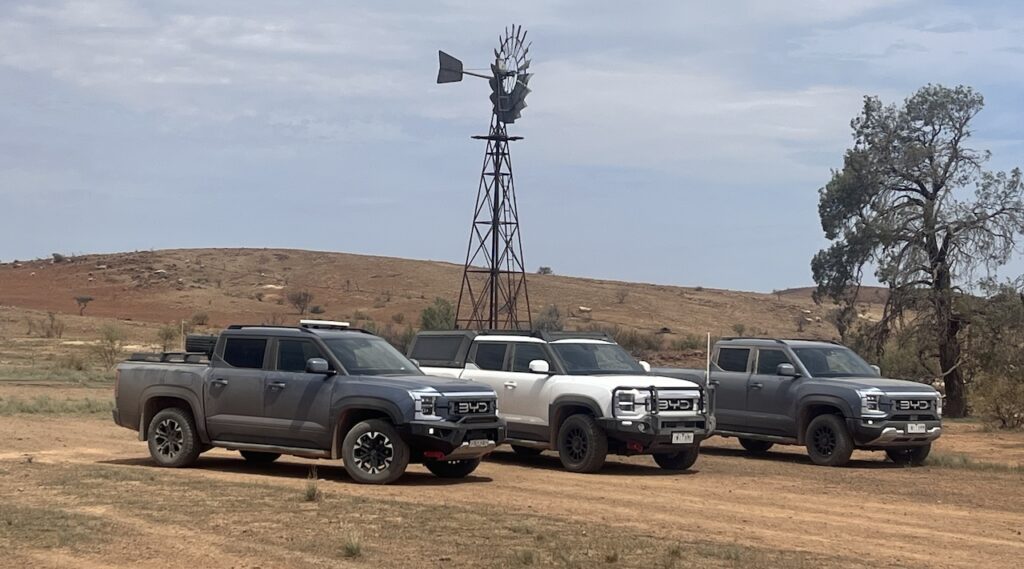
The Cannon Alpha PHEV comes with a nine-speed automatic transmission, high and low range 4×4 and mechanical locking diffs.
The Shark relies on the instant torque of its e-motors and traction control to tackle off-road obstacles.
The Cannon Alpha PHEV claims a maximum 3500kg braked towing capability, while the Shark 6 claims 2500kg.

The Cannon Alpha claims a 115km EV range and 1060km combined range. The Shark 6 claims 100km and 800km.
All these claims are made on the optimistic ADR81/02-NEDC standard. GWM is also claiming a better fuel consumption rate – 1.7L/100km versus 2.0L/100km – but this is on the highly hypothetical PHEV test cycle.
The $57,900 single model Shark 6 line-up is priced cheaper than the two Cannon Alpha models, the $59,660 Lux and $66,990 (all pricing plus on-road costs), but GWM argues that’s compensated for by its vehicle’s capability and equipment list.
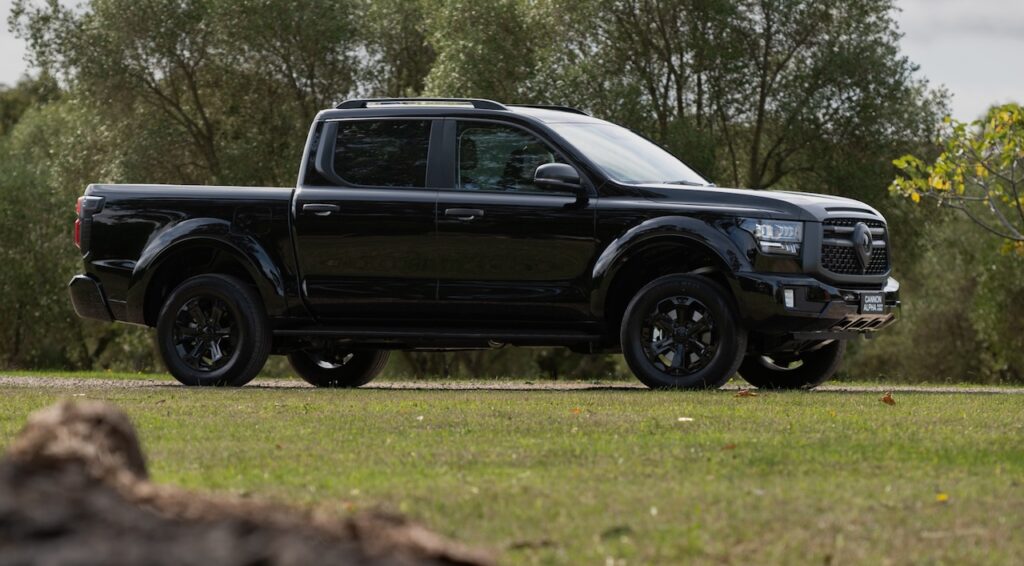
“There is one of two ways you can go about developing a [a PHEV 4×4 ute] and bringing that vehicle to market,” said Maciver.
“BYD has gone down their route and that’s their decision and we have gone down our route.
“We’re very, very much embedded in the fact that we believe a ute regardless of the powertrain has to deliver on some core USPs [Unique Selling Propositions] and deliverables for an Australian consumer.”
Maciver said 3.5 tonne towing was a core ingredient required of a 4×4 ute, something GWM learned the hard way when it launched the smaller Cannon ute with 3.0-tonne towing.
“We listened to that feedback from the media and the public and we developed 3.5 tonne,” he said. “It would be remiss of us not to bring 3.5 tonne regardless of what the powertrain is with this new model and we have done that.
“We also know that four-wheel driving is a huge part of Australian life. Not everyone does it every day but the majority of people who are buying 4×4 utes – again many of them never go off-road – it’s the promise and the opportunity to do so.
“So again it would be remiss of us not to bring the right technology we already have available to us in that segment.”
While GWM’s focus was on the Shark 6 at the presentation, the incoming Ford Ranger PHEV wasn’t forgotten either.
“We have the car to absolutely take the fight to not only the BYD Shark but the Ford Ranger PHEV as well,” promised Maciver.


